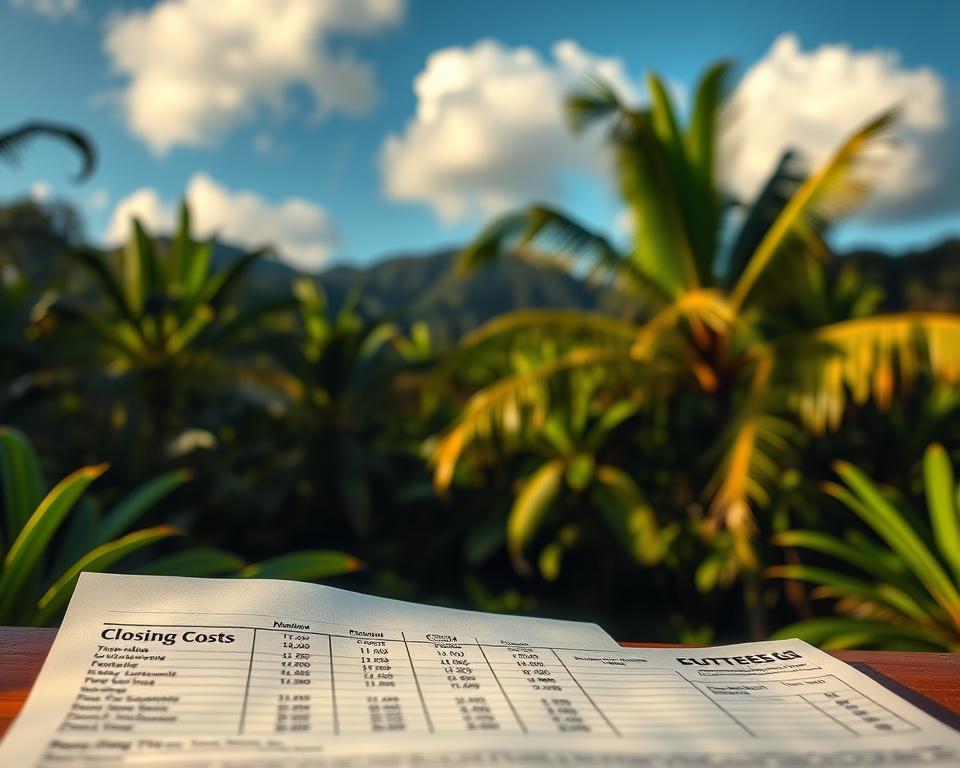Real Estate Closing Procedures in Costa Rica: Our Expertise
Did you know that Costa Rica’s property transfer system is uniquely formal, requiring both the seller and buyer to sign documents in the presence of a notary public? This distinctive process can be daunting for foreign investors.
At Gap Real Estate, we simplify buying, selling, or investing in Costa Rica. With over two decades of coast-to-coast experience, we deliver seamless transactions through expert guidance and clear communication.
Our extensive local knowledge is crucial in navigating Costa Rica’s formal property transfer system, which differs significantly from North American real estate procedures. We help clients overcome the challenges of the closing process, ensuring a smooth transaction.
Understanding the Costa Rican Real Estate Closing Process
Costa Rica’s real estate closing procedures are shaped by the country’s legal framework, which differs significantly from North American practices. The process involves a formal property transfer system that requires both the buyer and seller to sign documents in person before a Costa Rican notary public.
The Formal Property Transfer System
The formal property transfer system in Costa Rica is designed to ensure a secure and transparent transaction process. At the heart of this system is the requirement for both parties to be present at the closing, where they must sign documents in front of a notary public. This notary is not just a witness but an attorney with special government recognition. The system also mandates that all transfer documents be in Spanish and read aloud to all parties involved.
Key aspects of this system include:
- The necessity for buyers to declare the origin of funds for the purchase, which is then incorporated into the closing document.
- The use of a centralized computer system called “folio real” at the Costa Rican Public Register to officially confirm title and ownership.
- The requirement for both parties to be physically present at closing, as documents cannot usually be sent for remote signatures.
Key Differences from North American Procedures
One of the most significant differences between Costa Rican and North American real estate closing procedures is the role of the notary. In Costa Rica, only attorneys with special government recognition can serve as notaries, adding a layer of legal expertise to the process. Additionally, the requirement for all documents to be in Spanish and read aloud at closing can be a notable difference for foreign buyers.
The Costa Rican system also places a strong emphasis on verifying the origin of funds for property purchases, a step that is not always required in North American transactions. Understanding these differences is crucial for foreign buyers to navigate the Costa Rican real estate market successfully.
Essential Pre-Closing Steps and Due Diligence
To ensure a secure and transparent real estate transaction in Costa Rica, certain pre-closing steps are indispensable. The process begins with the buyer requesting an Option to Buy agreement from their real estate agent, which typically requires a 10% down payment. This initial step allows the buyer’s attorney to conduct thorough due diligence on the property.
Property Registration Verification
One of the first steps in due diligence is verifying the property’s registration in the Costa Rica National Registry (Registro Nacional). This registry maintains a sophisticated database of all registered properties, providing crucial information such as the property’s legal location, permitted uses, land extent, and neighboring borders. It also details any judgments, mortgages, or limitations affecting the property. Our team ensures that this verification process is thorough, safeguarding the buyer’s interests.
Title Search and Legal Review
A comprehensive title search and legal review are critical in identifying any potential issues with the property. This process involves examining the property’s history, including past ownership and any outstanding liens or encumbrances. Our attorneys conduct a meticulous review to ensure that the seller has the proper authority to sell and that there are no unexpected surprises for the buyer.
The Option to Buy Agreement
The Option to Buy Agreement is a critical document that outlines the initial contract conditions between the buyer and seller. It not only requires a 10% down payment but also establishes the terms under which the sale will proceed. This agreement gives the buyer a period during which they can conduct due diligence without the risk of the seller backing out or selling to another party.
Due diligence requirements can vary significantly based on the property’s location (urban vs. rural) and size, with larger properties necessitating more extensive investigations. Verifying the true identity and circumstances of the property owner, whether an individual or corporation, is also crucial to ensure they have the authority to sell. Our team guides buyers through each step of this process, ensuring a secure and transparent transaction.
Legal Documentation Required for Closing
Understanding the legal documentation required for a real estate closing in Costa Rica is essential for a successful transaction. The process involves several key documents that both buyers and sellers must prepare to ensure a smooth transfer of property.
Essential Documents for Buyers
Buyers must provide valid identification documents, such as a Costa Rican cedula, Costa Rican residency card (DIMEX), or a foreign passport. If the purchase is being made through a Costa Rican company, a shareholders’ meeting resolution approving the purchase must be prepared and received by the closing attorney a few days prior to closing.
- Valid identification documents (Costa Rican cedula, DIMEX, or foreign passport)
- Shareholders’ meeting minutes for corporate purchases
- Declaration of origin of funds as required by Costa Rica’s anti-money laundering regulations
Additionally, buyers who cannot be physically present at the closing may utilize a power of attorney, which must comply with specific formalities under Costa Rican law.
Essential Documents for Sellers
Sellers are required to provide proof that property taxes and municipal assessments have been paid through the closing date. This documentation is crucial for a smooth transaction.
- Proof of payment of property taxes through the closing date
- Proof of payment of municipal assessments through the closing date
All transfer documents must be in Spanish and are typically prepared by a Notary Public. These documents are read aloud to all parties at the closing, ensuring transparency and compliance with Costa Rican law.
We ensure that all necessary documents are prepared and reviewed in a timely manner, with closing documents available for review prior to the closing date.
Real Estate Closing Procedures in Costa Rica: Step by Step
Navigating the complexities of Costa Rica’s real estate closing procedures requires a deep understanding of the local legal framework and practices. We will guide you through the step-by-step process, ensuring a smooth transaction.
The Role of the Notary Public
In Costa Rica, the Notary Public plays a crucial role in real estate transactions, differing significantly from the U.S. concept of a notary. Only a licensed attorney can serve as a Notary Public, except for consular notaries for diplomatic purposes. The Notary Public is responsible for drafting the transfer deed and ensuring its registration in the Property Section of the Public Registry.
This critical role involves verifying the identities of the parties involved, ensuring that the transfer deed is properly executed, and that all legal requirements are met. The Notary Public must also maintain a Protocol book, recording all transactions in letters only, which is then archived permanently in the National Archives.
The Closing Meeting Process
The closing meeting, where the transfer deed (escritura) is signed, is a pivotal step in the process. Both the buyer and seller must be present to sign the deed in person. The Notary Public reads the deed aloud in Spanish, ensuring that all parties understand the terms and conditions.
This meeting is a formal affair, and the Notary Public ensures that all legal formalities are observed. Once the deed is signed, the Notary Public is responsible for presenting it to the Public Registry for registration.
Registration of the Transfer Deed
After the closing meeting, the Notary Public presents the transfer deed to the Property Section of the Public Registry. The registration process typically takes 45-60 days. Once registered, the property is officially transferred to the buyer’s name, and the “folio real” system ensures that the property’s registration details are updated and verified.
We ensure that our clients are guided through this process, addressing any potential complications that may arise and verifying that the property is properly registered in the buyer’s name.
Understanding Closing Costs and Tax Obligations
The process of buying real estate in Costa Rica involves not just the purchase price, but also various closing costs and taxes. When purchasing a property, it’s essential to understand these additional expenses to budget accurately.
Transfer Taxes and Registration Fees
In Costa Rica, a 1.5% transfer tax is levied on the sale of properties, calculated based on either the registered fiscal value or the current sales price, whichever is higher. Additionally, various documentary stamps and registry fees are required for property registration, including National Registry Stamps (0.5%), Agrarian Fees (0.15%), Fiscal Stamps, National Archive Fees, Bar Association Fees, and Municipal Fees (0.2%). For instance, on a $100,000 property sale, the transfer tax and registration fees would be a significant portion of the total closing costs.
- Transfer tax: 1.5% of the sale price or fiscal value
- National Registry Stamps: 0.5% of the sale price
- Agrarian Fees: 0.15% of the sale price
- Municipal Fees: 0.2% of the sale price
Legal Fees and Notary Expenses
Legal fees and notary expenses are also significant components of closing costs in Costa Rica. The notary fees are calculated on a sliding scale based on the property’s value. Furthermore, a 13% Value Added Tax (VAT/IVA) applies to legal fees and escrow services. For example, on a $200,000 sale, the legal fees, notary expenses, and VAT can amount to a substantial sum.
For more information on Costa Rica’s real estate market and how to navigate it, visit Gap Real Estate.
Additional Costs and Considerations
Beyond the primary closing costs, other expenses may arise, such as due diligence costs, escrow fees, and costs associated with corporate structures if applicable. Typically, closing costs in Costa Rica are split between buyers and sellers, although this can be negotiated in the purchase agreement. Understanding these costs is crucial for budgeting purposes.

For a $100,000 property, total closing costs, including legal fees, transfer taxes, stamps, and VAT, can amount to approximately $3,872. On a $200,000 sale, these costs can total about $7,369. Being aware of these expenses helps buyers and sellers plan more effectively.
Conclusion: How Gap Real Estate Simplifies Your Closing Experience
With over 20 years of experience in the Costa Rican market, we simplify the real estate closing process for our clients. Our deep local knowledge and end-to-end support services ensure that buyers and sellers navigate the complexities of Costa Rica’s real estate laws and regulations with confidence.
We assist clients in choosing the right corporate structure for property ownership, managing all aspects of the closing process, and providing transparent communication throughout. Our expertise helps overcome common challenges faced by foreign buyers, ensuring a stress-free experience from initial interest through closing and beyond.
At Gap Real Estate, our commitment to results-driven service means your success is our priority. Whether you’re finding your dream home or securing a strategic investment, we’re here to simplify every step. Contact us today via phone, WhatsApp, or email to learn more about our services and how we can support your Costa Rican real estate transaction.




